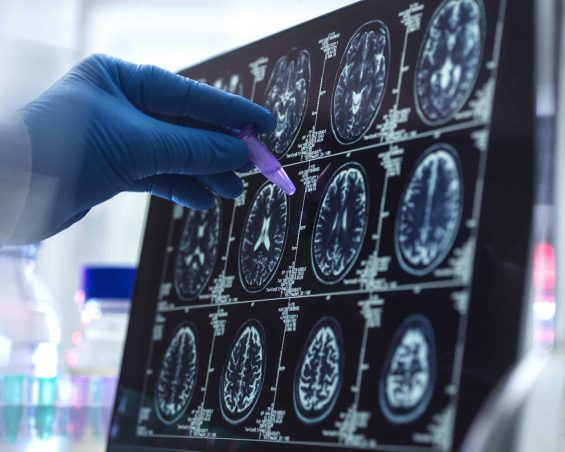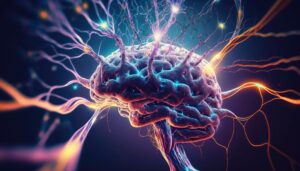Alzheimer’s Disease & Dementia Care Treatment
Expert Virtual Mental Health Care Across 8 States
Memory problems can be more than just “getting older.” When forgetfulness, confusion, or difficulty thinking start to interfere with everyday life, it may be time to consider a comprehensive psychiatric evaluation. At Lifetime Insight, our board-certified psychiatrists specialize in online memory disorder treatment - helping adults and families navigate symptoms of Alzheimer’s disease, dementia, mild cognitive impairment, and other neurocognitive disorders.
Our board-certified psychiatrists treat adults in California, Florida, Nevada, Virginia, Colorado, Kansas, Iowa, and Nebraska. Through secure telepsychiatry, you can receive expert care without leaving home, making treatment more accessible and consistent.
Understanding Dementia, Alzheimer’s Disease, and Other Memory Conditions
Memory challenges – such as forgetfulness, confusion, or trouble thinking clearly – can be more than a normal part of aging. Many people experiencing these symptoms are actually facing conditions like dementia, Alzheimer’s disease, or mild cognitive impairment (MCI). Dementia is a general term describing a decline in memory and cognitive function that interferes with daily living, and Alzheimer’s is its most common cause, accounting for about 60–80% of cases.
When Is Memory Loss More Than Aging?
Some forgetfulness is expected as we grow older, but certain signs may suggest a more serious issue. When memory lapses begin to disrupt daily life or are accompanied by changes in personality, reasoning, or language, it may be more than normal aging. Recognizing these red flags early can lead to timely diagnosis and better outcomes.
Warning signs may include:
- Repeating the same questions or stories
- Getting lost in familiar places
- Difficulty managing finances, medications, or appointments
- Misplacing items and being unable to retrace steps
- Confusion about time, place, or people
- Withdrawal from hobbies or social activities
- Trouble following conversations or finding the right words
- Noticeable changes in mood, judgment, or behavior
If you or someone you love is experiencing these symptoms, especially if they are worsening over time, it may be time to consider a memory evaluation. Conditions like Alzheimer’s, mild cognitive impairment (MCI), Lewy body dementia, or frontotemporal dementia often begin subtly. Identifying the cause of memory problems early offers the best chance to slow progression and maintain quality of life.
Common Causes of Memory Loss and Cognitive Decline
Memory loss can stem from a wide range of causes. Some are temporary or reversible, while others signal a progressive neurodegenerative condition. At Lifetime Insight, we evaluate memory concerns with a comprehensive approach to identify the underlying issue and guide personalized treatment.
The most common conditions we diagnose and manage:
Mild Cognitive Impairment (MCI)
MCI involves noticeable memory decline beyond what’s expected for age, but without major disruption to daily functioning. It often presents as forgetfulness or difficulty with focus and decision-making. Some individuals with MCI remain stable for years, while others may develop dementia, making early detection critical.
Alzheimer’s Disease
The most common cause of dementia, Alzheimer’s leads to gradual memory loss, impaired judgment, difficulty with language, and disorientation. It typically begins after age 65 but can occur earlier. Symptoms worsen over time, eventually interfering with basic daily activities.
Vascular Dementia
Often caused by strokes or chronic poor blood flow to the brain, vascular dementia can lead to slowed thinking, confusion, and impaired concentration. Symptoms may appear suddenly or progress gradually, depending on the extent of vascular damage.
Lewy Body Dementia
Marked by fluctuating alertness, vivid visual hallucinations, movement changes, and memory loss, this condition shares features with both Alzheimer’s and Parkinson’s disease. It often begins with cognitive changes before physical symptoms develop.
Frontotemporal Dementia (FTD)
FTD tends to strike earlier in life (40s–60s) and affects behavior, personality, language, and executive function more than memory in its early stages. Families often notice unusual social behavior or language issues first.
Parkinson’s Disease with Dementia
Parkinson’s can lead to cognitive decline in later stages, including slowed thinking, difficulty with memory, and visual-spatial problems.
Post-Stroke and Traumatic Brain Injury (TBI)
Both stroke and head injury can result in temporary or permanent memory problems depending on the area of the brain affected.
Reversible Causes
Not all memory issues are permanent. Depression, anxiety, thyroid dysfunction, vitamin B12 deficiency, medication side effects, and sleep disorders can all cause cognitive symptoms. These are important to rule out before diagnosing a neurodegenerative condition.
How We Diagnose Memory Disorders
Getting an accurate diagnosis is the most important step in addressing memory concerns. At Lifetime Insight, we use a thorough and personalized approach that considers the full picture – medical, neurological, and psychiatric.
1. Comprehensive Psychiatric Evaluation
Memory symptoms often overlap with other mental health conditions. Depression, anxiety, trauma, and ADHD can all cause forgetfulness, disorganization, and brain fog. A detailed psychiatric evaluation helps distinguish between true cognitive decline and other possible causes.
2. Neuropsychological Testing
Formal cognitive testing evaluates different areas of brain function – including memory, attention, language, executive function, and processing speed. These assessments can identify subtle patterns of impairment and help differentiate between conditions like Alzheimer’s, MCI, or frontotemporal dementia.
3. Brain Imaging and Lab Work
Depending on the individual case, we may recommend a brain MRI, CT scan, or lab testing to rule out reversible causes of memory loss such as vitamin deficiencies, thyroid disorders, or brain injury.
4. Family and Functional Input
Because some individuals may lack awareness of their own symptoms, input from family members or caregivers is often essential. We also assess how memory issues are impacting daily life – work, driving, finances, and relationships.
Early diagnosis means earlier treatment and planning – especially for progressive conditions like Alzheimer’s or Lewy body dementia. If you or a loved one is experiencing memory problems, seeking help sooner rather than later can make a significant difference.
Treatment Options for Memory Loss and Dementia
Treatment for memory disorders depends on the underlying cause, stage of illness, and overall health of the individual. While some forms of memory loss are reversible, others – like Alzheimer’s disease – are progressive and require a combination of strategies to manage symptoms and support quality of life.
- Medical Management
Medications may be used to improve cognitive function, slow progression, or manage behavioral symptoms such as anxiety, depression, agitation, or sleep disturbances. - Treating Co-Existing Conditions
It’s essential to identify and address other contributing medical or psychiatric issues. Depression, thyroid disorders, vitamin B12 deficiency, sleep apnea, and even treatment side effects can mimic or worsen memory symptoms. Treating these may significantly improve functioning. - Therapy and Cognitive Support
Therapies such as cognitive rehabilitation, behavioral strategies, and occupational therapy can help individuals maintain independence longer. Structured routines, memory aids, and environmental modifications can reduce confusion and improve day-to-day life. - Support for Caregivers and Families
Caregiver burnout is common. Support groups, education, and counseling are often necessary for families navigating the challenges of dementia. We also assist with long-term planning and connecting to resources like elder law services, adult day programs, and respite care. - Lifestyle Approaches
Exercise, brain-stimulating activities, social engagement, and a heart-healthy diet may all play a role in maintaining cognitive health. These approaches are especially important in mild cognitive impairment or when trying to prevent progression.
While there is no cure for many neurodegenerative memory disorders, early diagnosis and a comprehensive treatment plan can slow decline and help individuals live fuller, more dignified lives.

When to Seek Help for Memory Problems
While occasional forgetfulness can be a normal part of aging, persistent or worsening memory issues should not be ignored. Knowing when to seek professional help can lead to earlier diagnosis and more effective treatment.
Signs it may be time to talk to a doctor include:
- Frequent forgetfulness that disrupts daily life
- Repeating the same questions or stories
- Difficulty performing familiar tasks (like managing finances or cooking)
- Getting lost in familiar places
- Word-finding difficulties or trouble following conversations
- Personality changes, irritability, or increased confusion
- Withdrawal from social activities or hobbies
If you or a loved one is showing signs of memory decline – especially if symptoms are worsening over time – a medical evaluation is recommended. Many causes of memory problems are treatable, and even in cases of progressive conditions like Alzheimer’s, early diagnosis provides the opportunity to slow progression and plan ahead.
Getting help early not only improves outcomes, but also empowers individuals and families to better navigate what lies ahead with dignity and support.
Our Approach at Lifetime Insight
At Lifetime Insight, we understand that memory loss – whether subtle or severe – can be deeply unsettling. Our goal is to provide compassionate, expert care that helps individuals and families get the answers they need and the support they deserve.
We offer:
- Comprehensive evaluations to distinguish between normal aging, mild cognitive impairment, dementia, and other causes of memory loss
- Diagnosis and treatment of Alzheimer’s disease, vascular dementia, Lewy body dementia, frontotemporal dementia, and related conditions
- Integrative Treatment Plans to slow progression, manage symptoms, or treat contributing factors such as depression or anxiety
- Collaboration with primary care and neurology when needed
- Education and support for caregivers and family members
- A holistic, lifestyle-oriented focus that supports brain health through nutrition, exercise, sleep, and stress reduction
Whether you’re experiencing new memory concerns or seeking guidance on an existing diagnosis, we are here to help you navigate the journey with clarity, compassion, and evidence-based care.

Insurance, Self-Pay & States We Serve
- Most major insurance accepted: Blue Cross, Blue Shield, Cigna, Aetna, Anthem
- Proud Lyra Health partner, providing no-cost care for eligible employer-sponsored plans
- Self-pay: $475 for initial evaluation, $225 for follow-up visits
- We offer HIPAA-compliant telepsychiatry for adults in California, Florida, Nevada, Nebraska, Virginia, Colorado, Kansas, and Iowa
*Please note: We do not accept Medicare, Medicaid, Tricare, or UMR/Optum. UMR/Optum
Why Choose Lifetime Insight?
Care from board-certified psychiatrists experienced in cognitive and memory disorders
No app downloads required, join securely from your browser
Early intervention and long-term management expertise
Collaboration with family members and other healthcare providers
Appointments typically available within a week
Take the First Step Toward Stability
Memory changes can be unsettling, but you don’t have to face them alone. Our psychiatrists provide online memory disorder treatment that’s personalized, respectful, and focused on improving quality of life for both patients and families.
Schedule your first appointment today and take a proactive step toward clarity and support.
Latest Insights on Mental Health & Recovery

Low Dopamine: The Hidden Symptoms—and How to Feel Better
What Does Low Dopamine Really Feel Like? By Sarit Hovav, MD, FAPAPublished October 24, 2025 Facebook X-twitter Linkedin Envelope Low dopamine doesn’t always feel like

Inflammation and Depression: The Hidden Causes—and How to Feel Better
Beyond Brain Chemistry: The Body’s Role in Depression Feeling persistently low, foggy, or fatigued — even when life looks “fine” on paper — might not

CTE (Chronic Traumatic Encephalopathy): The Hidden Symptoms—And How to Heal
Caring for your brain health doesn’t end when the game does.If you’re a former athlete—or someone who loves one—and you’ve noticed mood swings, memory loss,
